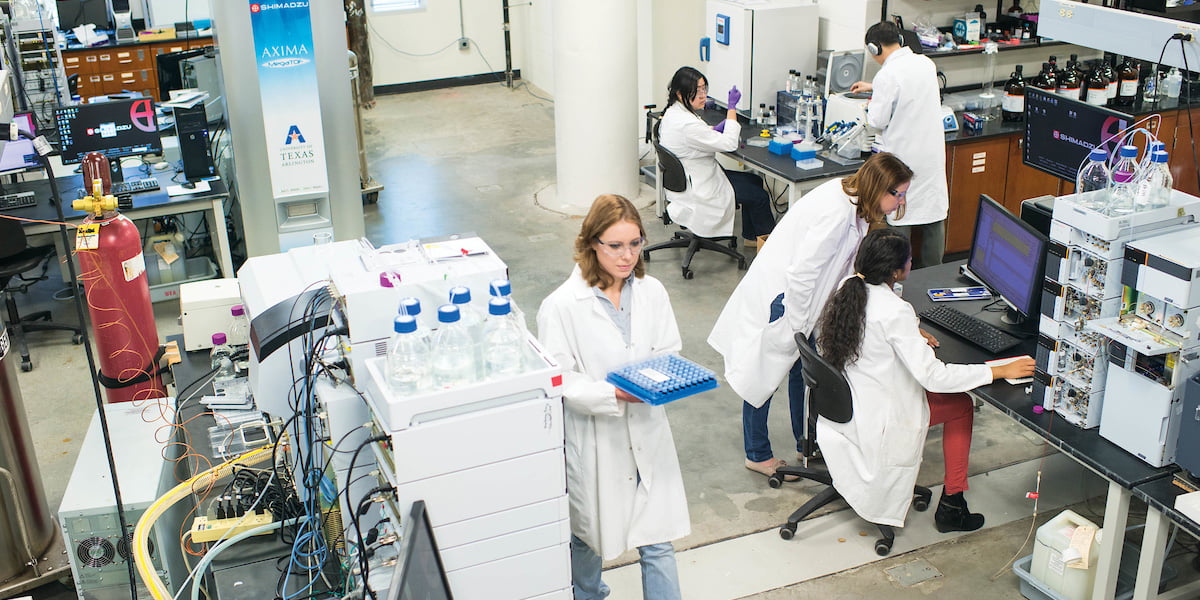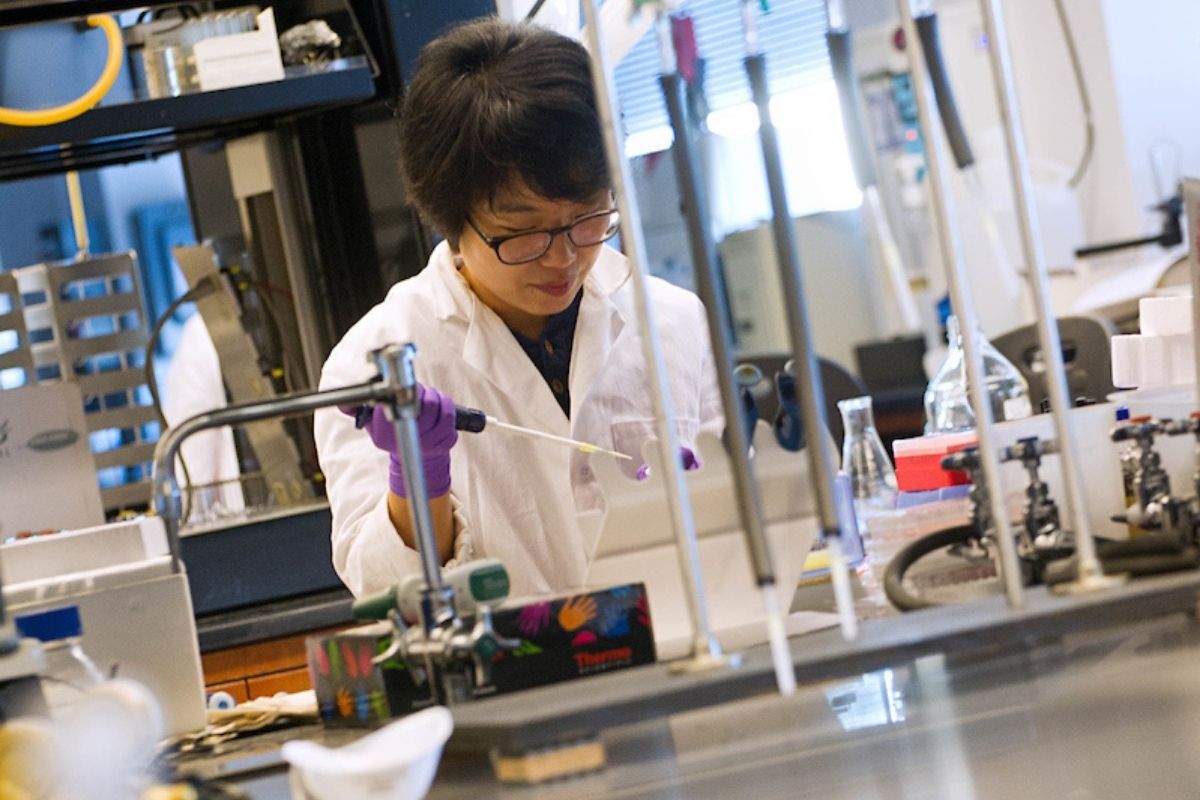Groundbreaking investigations win interdisciplinary research grants

The University of Texas at Arlington has awarded research grants to seven interdisciplinary teams focusing on key areas related to health care technology, personalized medicine, social issues and cognitive processes.
The Interdisciplinary Research Program (IRP) began in 2015 to catalyze research collaborations across academic disciplines in alignment with the guiding themes of the University’s strategic plan: health and the human condition, sustainable communities, global environmental impact, data-driven discovery and cultural understanding and social transformations.
“The University is proud to support the groundbreaking investigations of these outstanding interdisciplinary projects,” said Teik C. Lim, UTA’s interim president. “UTA is committed to providing our faculty from different units with the resources they need both to envision a better world and to discover the mechanisms to achieve it.”
Jim Grover, interim vice president for research, said UTA supports interdisciplinary research to encourage collaborations among faculty who typically do not work together.
“This program fosters innovation in its earliest stages,” Grover said. “The funding awarded through the IRP gives our researchers the opportunity and encouragement to explore novel connections and utilize the talents of their peers from across the University.”
The IRP is a flagship initiative of the Office of Research, which leads and funds the program each year. The 2021 IRP received additional support from the Office of the Provost to fund research projects that align with UTA’s newest strategic theme of cultural understanding and social transformations.
“A key component to the creation of a more diverse, equitable and inclusive academic environment is interdisciplinary collaboration,” said Pranesh Aswath, UTA’s interim provost and vice president for academic affairs. “When our researchers partner across disciplines, the potential for their innovations to impact and improve the human condition increases exponentially.”
The funded projects for 2021 are:
Investigations into the brain-heart connection in post-traumatic stress disorder (PTSD)
- Michael Nelson, associate professor of kinesiology
- Jing Wang, associate professor of nursing
- Angela Liegey-Dougall, associate professor of psychology
- Binu Thomas, adjunct assistant professor of bioengineering and assistant professor in the Advanced Imaging Research Center at UT Southwestern Medical Center
Approximately 7% of American adults suffer from PTSD, with the prevalence being two- to three-fold higher in women than men. Individuals with PTSD have elevated risk of heart disease, but the mechanism driving this increased risk remains incompletely understood. Using advanced imaging approaches and a unique pharmacologic intervention, the team will explore the link between the brain and heart among sufferers of PTSD.

Digital sensing of biomarkers for Alzheimer’s disease using non-intrusive and portable devices
- Hanli Liu, professor of bioengineering
- Kathy Lee, assistant professor of social work
- Li Wang, assistant professor of mathematics
Dementia likely affects more than 5 million people in the U.S. and more than 47 million people worldwide. The toll on patients with Alzheimer’s disease and dementia, caregivers and society is expected to increase as the population ages. Liu, Lee and Wang will explore digital biomarkers for early detection of Alzheimer’s disease with a novel, low-cost, portable and patient-friendly device.
A data-driven computational pharmacokinetic framework for EGFR-targeting therapy in esophageal cancer
- Souvik Roy, assistant professor of mathematics
- Zui Pan, associate professor of nursing and associate professor of biology
Cancer is a leading cause of death across the globe, with an estimated 39% of the world’s population receiving a cancer diagnosis during their lifetime. Roy and Pan will investigate a new stochastic pharmacokinetic framework that models epidermal growth factor receptor (EGFR) signaling, an important individual esophageal cancer biomarker, for a rapid and cost-effective evaluation of EGFR-targeted therapies.
Toward a virtual user for training design-thinking interview skills
- Farzaneh Eftekhari, assistant professor of visual communications
- Cesar Torres, assistant professor of computer science and engineering
Design thinking is an interdisciplinary method for encouraging practitioners to approach problems from a user-centered perspective. Critical to this process is an empathy-finding stage important to gaining a deep understanding of a user’s experience.
Using techniques from visual communications and computer science, Eftekhari and Torres will design a rapid prototyping tool for authoring chatbot interactions. This chatbot will be used to train students in conducting interviews with multiple stakeholders.

UTA summer undergraduate research program to promote diversity in health-related research
- Matt Brothers, associate professor of kinesiology
- Kytai Nguyen, professor of bioengineering
- David Keller, professor of kinesiology
- Kenyatta Dawson, director of undergraduate research
The National Institutes of Health have identified a need to increase the diversity of individuals, particularly those from underrepresented minority populations, who are involved in biomedical, behavioral and clinical research activities. Brothers, Nguyen, Keller and Dawson will support the recruitment of underrepresented minority students to research labs within STEM disciplines by launching a 10-week summer training program related to biomedical research.
County built and social environments associated with substance misuse among children and parents at risk for maltreatment
- Yeonwoo Kim, assistant professor of kinesiology
- Catherine LaBrenz, assistant professor of social work
- Philip Baiden, assistant professor of social work
In the United States, approximately 400,000 children enter the foster care system each year. The number of children who are referred to foster care due to parental substance use and the associated neglect is on the rise.
Using county data, Kim, LaBrenz and Baiden will investigate community factors that contribute to parent and child substance use and identify methods to intervene and prevent cases of child abuse and neglect.
From data to personalized preventive medicine: leveraging wearable sensors to promote active living in women of color with obesity
- Yue Liao, assistant professor of kinesiology
- Kyrah Brown, assistant professor of kinesiology
- Grace Ellen Brannon, assistant professor of communication
- VP Nguyen, assistant professor of computer science and engineering
- Haleh Aghajani, research scientist at the UTA Research Institute
Using combined methodologies of health communication, data science and health promotion, the researchers will conduct a mixed-methods study on the development of personalized feedback messaging for women of color who are at risk of heart disease, diabetes and other complications due to obesity.